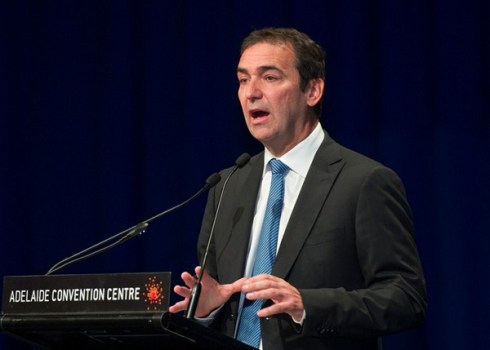By Paul Hemsley
Western Australian Local Government Association (WALGA) President Troy Pickard has condemned an election promise by the state’s Labor Opposition to cap council rates and align them with movements in the Consumer Price Index (CPI).
Mr Pickard claims the rate pegging plan is likely to cause losses of local services and facilities.
The WA Labor Opposition has pounced on the issue of council rate rises in the final days of the campaign before the state election on Saturday, 9th March 2013.
It claims the caps will halt “unnecessary rate increases” and claims that between 2011-12 and 2012-13, ratepayers’ bills increased by 27 per cent in the City of Greater Geraldton; 10.65 per cent in the Shire of Nannup; 9.9 per cent in the City of Rockingham; 8 per cent in the Town of Victoria Park; and 7.5 per cent in the Shire of Peppermint Grove.
WA Opposition Leader, Mark McGowan said he is concerned about the lack of transparency in some local governments which have “imposed steep rate increases” on ratepayers.
"Many people are unhappy with the large rate increases that have taken place in a number of local government authorities,” Mr McGowan said.
According to Mr McGowan, rate increases across the state in 2012-13 amounted to an average of 5.81 per cent, which in turn becomes a “big burden” on families around the state in the country and the city when councils increase rates by 10 per cent per annum.
"There needs to be some stringency around rate increase and it's reasonable to suggest that you can live within the 4.5 per cent increase per annum,” Mr McCowan said.
The WA Opposition has said it will solve the problem of rate hikes by introducing a scheme that would cap annual rate increases to maximum of 4.5 per cent for three years. "Councils will be free to set their rates at lower than the rate cap, Mr McGowan said.
Under this plan, the WA’s Economic Regulation Authority (ERA) would then set the cap but councils with “significant” long-term capital works programs will be allowed to appeal their rate cap to the ERA, which will provide a recommendation to the Minister for Local Government.
However WALGA has dismissed the pitch for rate capping as “ill conceived” and lacking “appropriate economic fundamentals”.
The Opposition’s suggested plan also conflicts with WALGA’s Local Government Cost Index (LGCI), which has been running for the past four years and has been recommended by WALGA to be applied to council rates as a “more appropriate” measure of inflation on council costs.
Mr Pickard said the capping plan had numerous critical flaws including the small proportion that council rates comprise in an individual’s total tax bill.
The factors contributing to the calculation of the CPI have “little bearing” on the costs of providing council services and facilities, Mr Pickard said.
"There is so much wrong about this idea. It sounds reasonable in isolation but quickly unravels when you start to work through the implementation and the reality of local community financing," Mr Pickard said.
He said the saving by households will not be much under Labor’s plan because 83 per cent of tax is raised by the federal government, 14 per cent by the state government and just three per cent by local government.
According to Mr Pickard, the Opposition’s principle that the CPI could underpin council rates sounds logical but the variables that make up the CPI do not inflate the costs of council operations, rather it is labour costs and infrastructure costs.
Mr Pickard said if a community is asked to pay rate increases in excess of the LGCI, then the relevant council would be expected to provide an adequate explanation such as funding a one-off major project.
This explanation would also include under rating from previous years or to meet an “extra ordinary” loss of revenue or increased costs as a consequence of decisions by other spheres of government such as cutting grants or shifting service responsibility, Mr Pickard said.
New South Wales is the only other state government in Australia that engages in rate pegging, but Mr Pickard said he was surprised by Mr McGowan’s apparent willingness to embrace the example of the former NSW government.
"I've not heard anyone cite the former NSW Government as a best practice example of how to manage the public sector,” he said. “We don't want that example prevailing in WA.”
“Placing contrived interventions like rate capping and CPI based indexation into the rating system will only serve to undermine service delivery, accountability, and ultimately good governance, at the local level,” Mr Pickard said.
However he said that WALGA would hope to work cooperative and respectfully with the administration elected this weekend and “gladly advise” Mr McGowan of the “gaping holes” in his rates proposals if comment is sought.
Comment below to have your say on this story.
If you have a news story or tip-off, get in touch at editorial@governmentnews.com.au.
Sign up to the Government News newsletter

